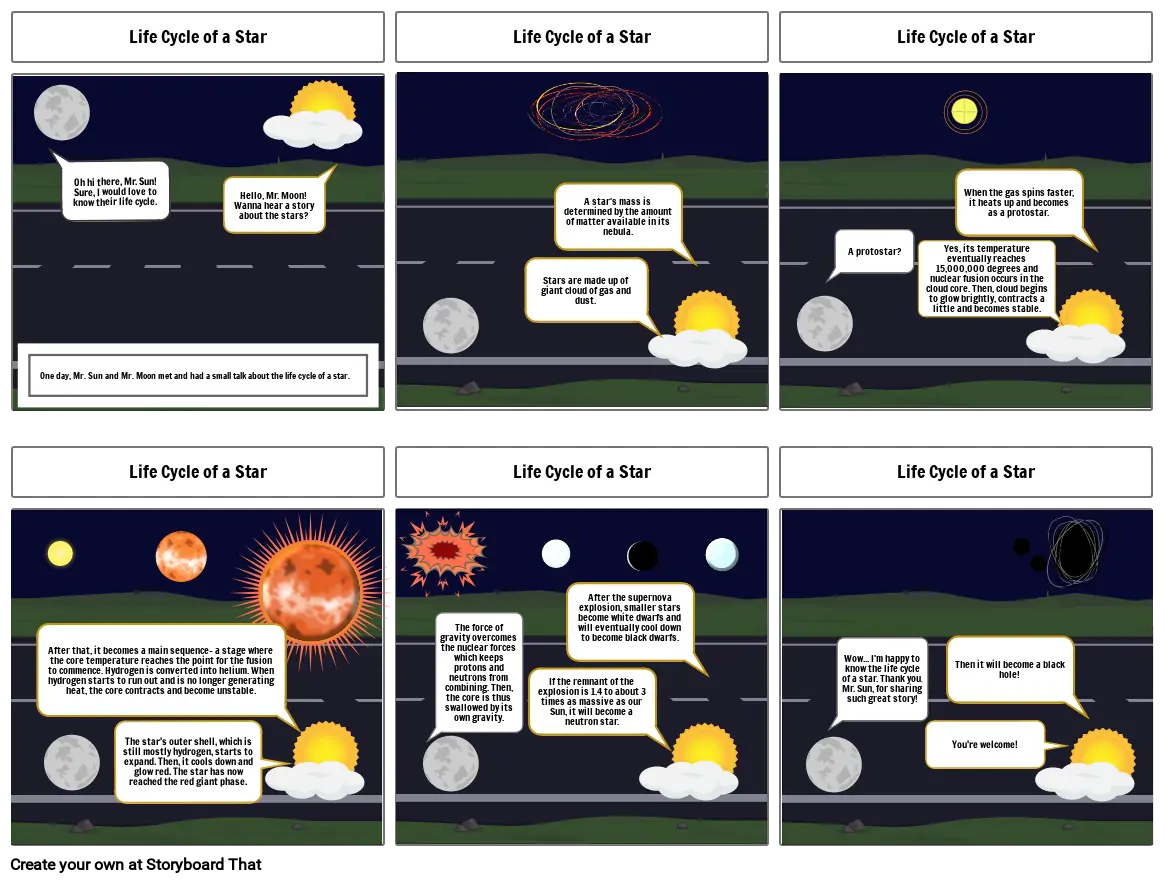Life Cycle of a Star

Tekst Storyboardowy
- Life Cycle of a Star
- One day, Mr. Sun and Mr. Moon met and had a small talk about the life cycle of a star.
- Oh hi there, Mr. Sun! Sure, I would love to know their life cycle.
- Hello, Mr. Moon! Wanna hear a story about the stars?
- Life Cycle of a Star
- Stars are made up of giant cloud of gas and dust.
- A star's mass is determined by the amount of matter available in its nebula.
- Life Cycle of a Star
- A protostar?
- Yes, its temperature eventually reaches 15,000,000 degrees and nuclear fusion occurs in the cloud core. Then, cloud begins to glow brightly, contracts a little and becomes stable.
- When the gas spins faster, it heats up and becomes as a protostar.
- Life Cycle of a Star
- After that, it becomes a main sequence- a stage where the core temperature reaches the point for the fusion to commence. Hydrogen is converted into helium. When hydrogen starts to run out and is no longer generating heat, the core contracts and become unstable.
-
- Life Cycle of a Star
-
-
-
- The force of gravity overcomes the nuclear forces which keeps protons and neutrons from combining. Then, the core is thus swallowed by its own gravity.
-
- If the remnant of the explosion is 1.4 to about 3 times as massive as our Sun, it will become a neutron star.
- After the supernova explosion, smaller stars become white dwarfs and will eventually cool down to become black dwarfs.
- Life Cycle of a Star
- Wow... I'm happy to know the life cycle of a star. Thank you, Mr. Sun, for sharing such great story!
- Then it will become a black hole!
- The star's outer shell, which is still mostly hydrogen, starts to expand. Then, it cools down and glow red. The star has now reached the red giant phase.
- You're welcome!
Utworzono ponad 30 milionów scenorysów

